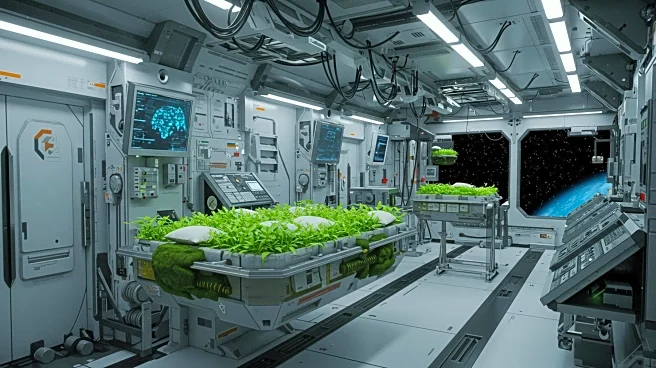What is the story about?
What's Happening?
NASA's Crew-11 astronauts have launched a new chapter in space agriculture aboard the International Space Station (ISS) with the VEG-03 experiments. These experiments involve planting seeds in 'seed pillows' filled with a clay-based growing medium and controlled-release fertilizer. The initiative aims to provide nutrition and psychological benefits to astronauts during missions. The experiment takes place inside Veggie, a chamber equipped with LED lights to support plant growth. Astronauts will monitor the plants, add water as needed, and document growth through photographs. At harvest, some produce will be consumed, while other samples will be frozen for analysis on Earth.
Why It's Important?
The ability to grow fresh food in space is crucial for long-duration missions to the moon and Mars, providing astronauts with nutritional variety and psychological comfort. This research could also benefit Earth by improving indoor crop cultivation techniques, potentially aiding horticultural therapy programs for individuals with limited access to traditional gardening methods. The success of these experiments could lead to more sustainable and self-sufficient space missions, reducing reliance on Earth-based supplies.
What's Next?
NASA aims to validate various crops for space missions, giving astronauts more control over their diet. The techniques developed may be adapted for Earth-based agriculture, particularly in controlled environments. Future research will continue to explore the viability of different crops and growing methods in microgravity, potentially expanding the range of produce available to astronauts.

















